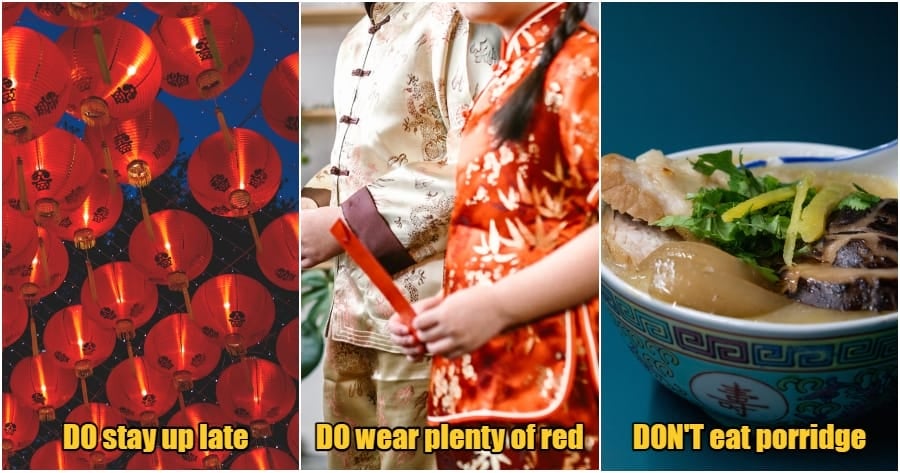A time for prosperity, Chinese New Year is just days away from arriving. For those who are still preparing for the blessed holiday, this celebration is one of the many cultural festivities where a variety of people from different backgrounds gather to commemorate this auspicious period of time.
However, there are relevant customs and practices one must be aware of, not only leading up to the day of the celebration itself, but whilst participating for the occasion as well.
From choosing one’s outfits to decorating the house, deciding what food to eat and even matters pertaining to hygiene, here are some things you may want to do or avoid altogether for Chinese New Year.

Chinese New Year DOs
1. Do give ang pows to those who are unmarried
While this may seem rather obvious at first glance, handing out ang pow packets to unmarried individuals and children have long been a tradition in Chinese culture, especially during the festive season of Chinese New Year or even during birthdays and weddings.
Meant to signify an act of “handing out” goodwill, luck, and prosperity, one tip for those who are giving ang pows this year is to use new banknotes, as it follows the tradition of allowing new beginnings while dispelling any bad luck from the previous year. Additionally, it is customary to not seal these ang pow packets, so as to allow a “smooth flow of finances” to the receiver’s behalf.
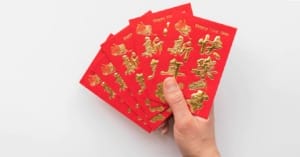
Image for illustration purposes only.
2. Do eat lots and lots and LOTS of dumplings!
In reference to the Mandarin language, Chinese dumplings are simply known as jiaozi, which resemble a word that means bidding farewell to the old and ushering in the new. Besides just being a steamed ball of dough ready to be gobbled down, a usual tradition carried out by most devotees are to eat the item an hour before and the first hour of the Lunar New Year.
Aside from that, varying traditions also speak about the shape of dumplings resembling that of money pouches, thereby representing fortune and prosperity.
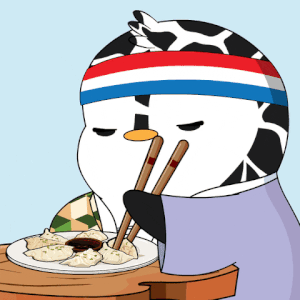
3. Do wear anything red – both inside and out
All Malaysians will definitely know that the colour red is synonymous with the celebration of Chinese New Year. But why is that so? In historical context, red is the traditional colour of Han, who was the dominant ethnic group in China, also signifying good fortune, luck, vitality, and celebration.
For arguably one of the biggest holidays in the Asian community across the world, donning red clothes and even undergarments represents a boost in one’s luck while also warding off evil spirits. And why just stop there? Use red ang pow packets and red decorations when sprucing up your environment too.

Image for illustration purposes only.
4. Do exchange oranges with loved ones at every opportunity you get
Hardly an arguable stance, mandarin oranges have long been considered the staple fruit for Chinese New Year. While the reasons for this are aplenty, it is largely considered to be a symbol of good fortune, as the word orange in Mandarin sounds similar to the word wealth. Additionally, the orange hue of the fruit is said to symbolise that of gold, thereby making it a very auspicious fruit.
An indicator for freshness, be sure to exchange a pair of mandarin oranges with those who are closest to you as a sign to bring them good luck and happiness.

Image for illustration purposes only.
5. Do decorate your house with “lucky” decorations
Luck may be subjective in most situations, but when celebrating the Lunar New Year, you might want to have some specific items in your abode to ring in a delightful year ahead. Hanging red Chinese lanterns in front of your door is believed to drive off bad luck, while an accompaniment of New Year couplets at one’s doorways are said to express good wishes and auspiciousness in Chinese culture.
Aside from that, kumquat trees also hold significance for the celebration. In Cantonese, kumquat is referred to as gam gat sue, with the word gam bearing the meaning of gold in the language. On top of that, the word also has resemblance to gat, which means good luck.
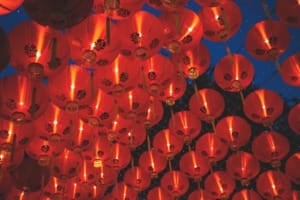
Image for illustration purposes only.
6. Do stay up as late as you can on New Years Eve
Encouraged amongst children of any age, it is popular in the Chinese culture to stay up as close to or past midnight on the eve of Chinese New Year – and no, the reason is not due to having a public holiday on the following day. Instead, many devotees believe that staying awake past midnight is done to “send off” the old and “welcome in” the new.
Importantly, however, many also believe that, the longer you stay awake, the longer one’s lives and that of their parents. In an article published by VICE, this often translates to an act of filial piety that is also rooted in fear and guilt. Nevertheless, young children may also convey the greeting to their parents in the morning as well, preferably as the first people they greet for the day.

Image for illustration purposes only.
7. Do organise or have a lion dance
In Chinese culture, lions symbolise a being of power, superiority, and wisdom. For a celebration that is all about highlighting goodness for the coming year and removing anything evil, lion dances are of the upmost importance to bring prosperity and good luck into the coming year.
Furthermore, the upbeat and lively performance also signifies the creation of a festive atmosphere while also drawing in happiness. Amplified as a tool to ware out bad energy, call these dancers not only to your homes, but to businesses, schools and even offices, as this practice is believed to bring good fortune for the rest of the year.
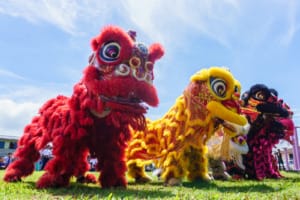
Image for illustration purposes only.
Chinese New Year DON’Ts
1. Don’t clean your house during Chinese New Year
If you’re hosting, there’s no doubt that you may want your abode to be spiff and clean, not only to welcome guests, but the brand new year as well. However, there is one giant no-no when it comes to Chinese New Year, and that is cleaning your house on the day of the celebration. Yes, this includes dishes as well!
Scrub, mop, sweep, and vacuum any surface to your heart’s desire before the stroke of midnight for the Lunar New Year, as it can signify getting rid of bad luck you may have accumulated over the past year. However, don’t do any cleaning once the big day arrives, as it represents “removing” good luck that arrived for the holiday.

2. Don’t use any sharp objects, especially needles, knives, or scissors
Looking to open something? Use your hands on Chinese New Year. In a piece contributed by Chinese Highlights, the blades of scissors are said to represent “sharp lips” of people who quarrel. Therefore, try not to use this item on the day itself, as it is perceived as an invitation of quarrels for the coming year.
A similar facet can be said about knives, as its use to “cut” things also signifies slicing potential wealth for the year. This also bears a resemblance to doing needle-work on the day as well. To keep it short and simple – try not to use anything with a prick or sharp edge during the celebration.
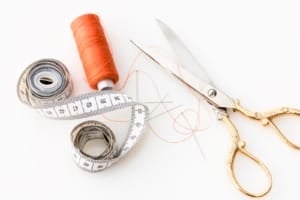
Image for illustration purposes only.
3. Don’t wear black or white
Customary in Chinese culture, red bears a fruitful history as to why it is perceived as a lucky colour during these festivities. On the opposite end of the spectrum, however, white and black are often associated with grief and mourning, and are considered bad luck to wear when celebrating Chinese New Year, as according to South China Morning Post.
In many Chinese societies, even in that of Malaysia’s, black is a primary colour worn during funerals, and can be considered downright disrespectful to certain individuals. With a variety of bright and other colourful tones to wear, stay clear of these two shades when choosing your ideal outfits.

Image for illustration purposes only.
4. Don’t eat congee or porridge
Through ancient Chinese belief, rice porridge and congee are viewed as a symbol of poverty-stricken individuals, mostly referring to past times when this was the only meal available. While accounts differ as to whether these meals should not be had for just breakfast or throughout the day altogether, eating these dishes are believed to bring ill luck on a monetary front.
Furthermore, the general idea of porridge being accepted as “poor people food”, acts as a bad omen, that one does not want to start the year “poor”.
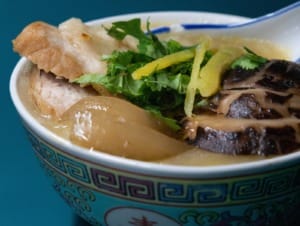
Image for illustration purposes only.
5. Don’t shower, wash your hair, or cut your hair – yes we’re serious
Looking fabulous for Chinese New Year is one of the biggest joys of this celebration – though your hair may have to take a back seat. The Mandarin word for hair, which is fa, bears similarity in pronunciation to the portion of those letters in the word facai, which means “to become wealthy”. Therefore, you’ll be in better shape not “washing” or “cutting” your fortune away at the start of the new year.
When coming to the part no one wants to talk about, it’s actually frowned upon to shower on the first and second day of the Lunar New Year. As these days are meant to signify celebrating the birthday of the Water God, one must not use water as a sign of respect, similar to the idea of not washing dishes.

Image for illustration purposes only.
6. Don’t buy or gift someone books
Yes, books are seen as modes to encourage the flow of knowledge and wisdom, just not during Chinese New Year. In Cantonese, the word book acts as a homonym for “lose”, according to the National Library Board of Singapore.
While reading itself is permitted during the season, it’s best to remind our favourite bookworms to stick to material they already possess.

Image for illustration purposes only.
7. Don’t lend money or borrow money from anyone
Though it may seem redundant to borrow money during the celebration, we all have that one friend or relative that may need a little cash to help them get through the season. Unfortunately for them, but fortunately for yourself, no person should be asking for or lending money to anyone.
According to Chinese customs, lending money is seen as an unlucky omen, signifying economical loss or even paving the way for more borrowers to approach you through the year. As for the borrower, requiring a loan of money also relates to a possibility of needing to borrow money for the rest of the year.
It is imperative that one returns any money they owe before the festive season. For those who lent money out, try not to seek a return on your loan until after the fifth day of the celebration.

Image for illustration purposes only.
But the most important do of all when welcoming the Year of the Dragon is to simply have fun and embrace these wonderful cultural traditions! Xīn nián kuài lè to all those celebrating!
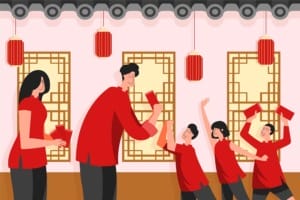
Did we miss out any of your customary do’s and don’ts for Chinese New Year? Let us know!
Also read: Lion Dancers Light Up Streets of S’pore With Magnificent Flashing Costumes That Have LED Lights

